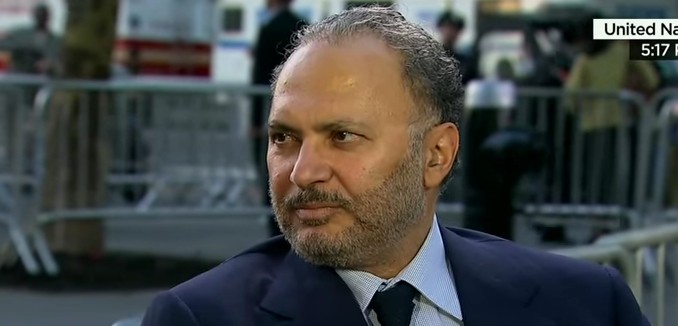Noting that his country is a mere 50 miles from Iran, Anwar Gargash, the United Arab Emirates’ minister of state for foreign affairs, wrote that the nuclear agreement recently reached with the Islamic Republic gives it a chance to be a good neighbor or to “subsidise instability across the region by escalating its funding for the Houthi rebels in Yemen, President Bashar al-Assad in Syria, Hizbollah in Lebanon and sectarian militias in Iraq,” in an op-ed published yesterday in the Financial Times.
We have also, however, to be realistic. Leaving aside what Iran has said, what has it actually done? Since the Islamic Revolution, it has engaged in an aggressive and expansionist foreign policy. Its sectarian approach to the Arab world has polarised relations between Shia and Sunni Muslims and boosted extremism. In Iraq, the Iranian government has undermined efforts to achieve a national consensus between Sunni and Shia Iraqis that would have countered the appeal of the terrorist group known as Islamic State of Iraq and the Levant (Isis). In Lebanon, Iran’s client Hizbollah continues to play a radicalising role inside the country and increasingly outside it as well.
Tehran’s involvement in the conflict in Syria, where more than 200,000 people have died, has prolonged it and made it more sectarian. The Assad regime had the chance to accept the 2012 Geneva accords, which set out a mechanism for a peaceful transition of power. Enjoying unconditional Iranian support, Mr Assad stubbornly refused.
In Yemen, Iran’s decision to support the Houthi rebels — in a country where it had no historic role — was a decisive factor in the Arab coalition’s decision to intervene militarily. Tehran now stands in the way of a political solution. Its support for the rebels is encouraging them to reject a UN-mandated political process and instead continue fighting. Iran can help resolve these two crises very simply — by ceasing its interference and accepting that these are Arab issues, best solved by Arabs themselves. That would be an early signal of its good intentions.
Although Gargash holds out hope that Iran will “transform itself,” he argues that this can only happen if the nuclear deal leads Iran to remedy its past behavior, which has exacerbated “extremism and sectarianism” over the past thirty six years.
[Photo: CNN / YouTube ]




